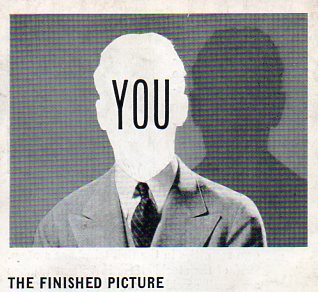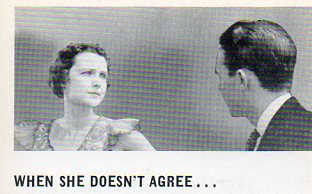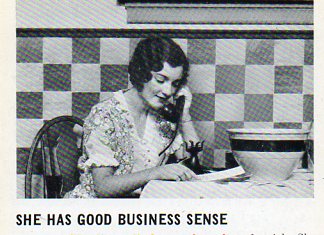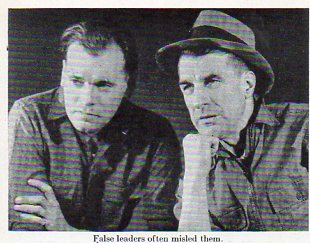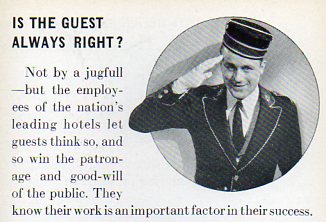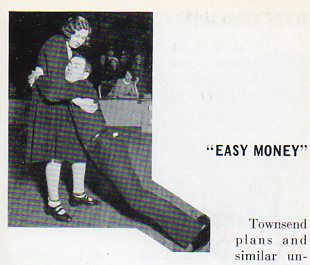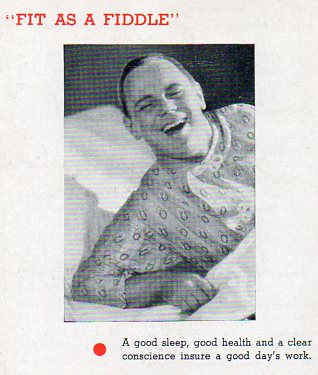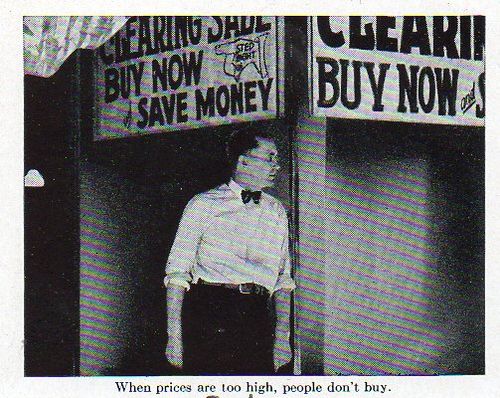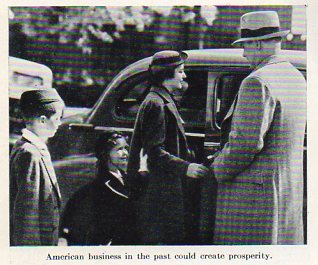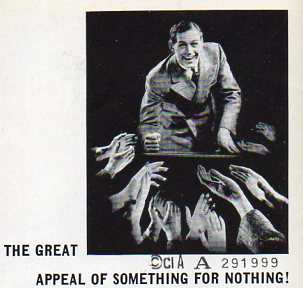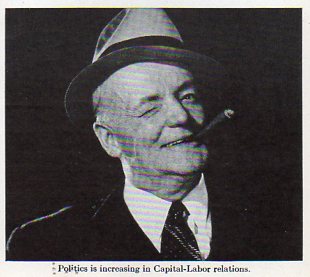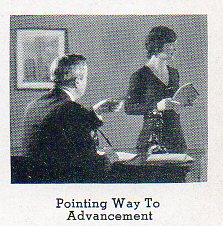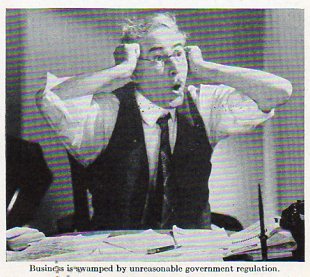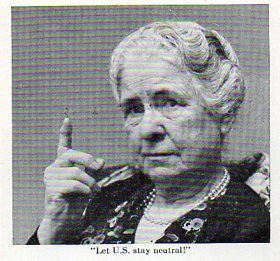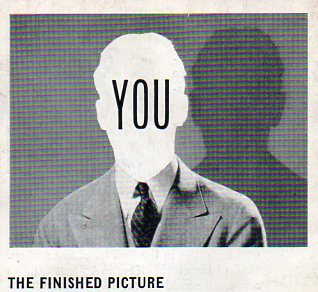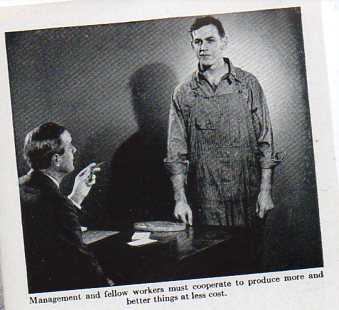JF Ptak Science Books
Following yesterday's post on semi-indulgent expressions from pamphlet covers printed at the end of the Depression of business motivational ideals come these images, found as text illustrations to these marvelous non-sequitur works. Although only four pages long, these pamphlets (leaflets, really) have provided--pound-for-pound--more images of quietly bizarre, unexpected images than just about any source that I have seen. Taken out of context these posed photographs ask more questions and provide for more imaginative jungle trots than their disappointing original intentions.
A is for Annoyed, which Mrs. Harrison is, annoyed that Mr. Harrison has yet again forgotten to paint his bald spot. He thinks that his wife is over-reacting, pushed over the edge of reasonableness from her quack prescription of Neck-So-Thin dietary supplements. He keeps his opinion to himself.
B is for Bowls of Business--there is no telling what the kitchen scene means so far as business is concerned for this woman in 1937. Perhaps she is calling in a good deal from her bra-phone (the 'phone cord seems to be going right into her heart) on a sale on bed pillows for bowls. I know that when she pushes back from the table her wooden chair will make a high-skreetching sound against the linoleum uni-fit flooring; her merchant husband, Mr. Beemish, will be awakened from his late sleep by the sound, again, and demand that she return the bowl to bed, pillow or not. Mr. Beemish was slightly feverish, wondering if he should go to his shop with window displays of nothing. The milkman--late again--shares a cigarette on the front porch with the ice man. The cigarette smoke rises to Mr. Beemish's bedroom window as he strains against his own miniature pillow to hear what the men are saying, while thinking of nothing but his ice melting and his milk getting warm. And his pillow-less bowl.
C is for crowds and the followers them make, if not for the ideas then for the mistakes...
D is for The Damned, forced into a 3rd level of Hell to endure unendurable people, to remain obsequious and smiling in the face of all adversary, all to provide for your family.
E is for Easy, which never was or isn't.
F is for Fit, the highest state for a human to reach in order to be a good worker. Mr. Hawk Fen's crooked smile, freshly-awake-combed hair, pajama top button buttoned and perfect pillow display his Perfect Attitude towards his day of work. Soon he will be able to go to sleep to wake up so that he may work again. "I like to hold the sheets at the very top--it is a perfect way to show my thick wrists" says Mr. Fen.
G is for Growth, especially in its illusory and unquantifiable aspects for the workers and their share in business growth's measurable benefits.
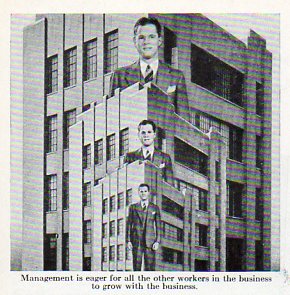 H is for Huff, the righteous indignation some folks feel when things don't go their way, or whn others "aren't quite right". As the pamphlet screams: "Customers Must Be Pleased!"
H is for Huff, the righteous indignation some folks feel when things don't go their way, or whn others "aren't quite right". As the pamphlet screams: "Customers Must Be Pleased!"
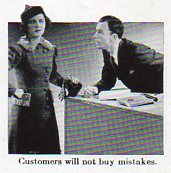
I is for Intuition, the strong suit of Helen Arendt, who reads people's decision history by interpreting forehead shadows. Mrs. Arendt's epitaph reads I've never had a forehead shadow, Myself. There was no "Mr. Arendt". "When your life is filled with shadows" Mrs Arendt explained, "there's no time for having to explain them to someone else, unless that someone was in the mirror".
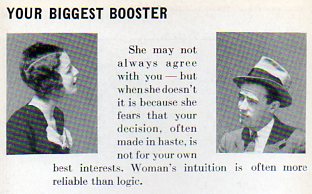
J is for Joke, which is what the idea of an heroic adventurous war is; or it can stand for Just, which wars sometimes are, or it it could stand for Junk when the wars are unjust and wrong. But war is almost always a misery, and almost never an adventure, especially to the soldiers fighting in it.
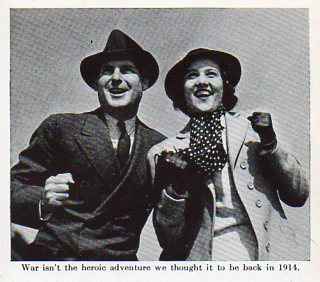
L is for Loss of Design Sense, which Mr. Beemish finally realizes applies to him, finding that his window displays of nothingness at low cost were ineffective in providing customers for the nothing he was selling. Disappointed at at odd, he leans against the doorway of his business, trying to accentuate his non-display with a small, too-tightly-tied bow tie. His wife is at home, arranging the bed bowls in the guest room.
M is for Memory and the stuff that used to be, while here in 1938 prosperity is just a word, evidently, even though this family looks top be fairly prosperous, or at least not un-prosperous. Perhaps they gave their prosperity in by not having a doorman.
N is for Nothing and the promises it makes, nothing breading nothing making nothing into something.
O is for Obvious, and also for Politics and the lifeblood it provides for business and for business for politics, though I am unsure of how that affects the working person in anything more than a trickle down fashion. This is a photographic portrait of Lamar "Tilty" Stoug, the man who invented the idea of "trickle down" economics. At the time of this sitting, Mr. Stouge was Chief Bull and Enforcer for the Ford Motor Company, which detailed certain strength actions against Ford workers interested in unionizing. "The 'trickle down' part came from when we talked close to the leaders in private" he said, "that they could take what the company gives them, either rammed down their throats nasty or trickled down like nice". The meaning of the phrase today is rather the same.
P is for Pointing the Way, in Mrs. Bleemish's job, where everything happens at right angles to one another, and where there are only four points of position, ever. After a long day of on-off attitudes, Mrs. Bleemish looks forward to oblique glances. Mr. Fent, her boss, often makes his secretary look to the left, as he cannot stop himself from looking at her extraordinarily beautiful neck.
R is for Regulation that shunts the business deal, and also stops business form the big business steal.
S is for Someday, a place and time in which we'll live, if only in its idea if not in its space.
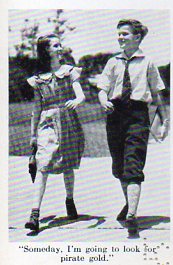
T is for Terrible which is for Idea, which the idea of neutrality was in 1940, when this woman raised her crookedy finger to make its point for staying out of the affairs of "Europe".
U is for Unexpected, that good and useful things can come from things even like trash, though not really. Trash is still trash, and until it isn't, please keep your opinions to yourself.
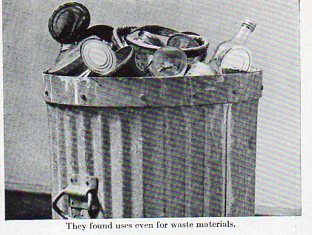
Y is for You and the envy of what is there, or isn't.
W is for wistful workers, dreamily dreaming of holding the memory of management's pen-pointing ideals for more productive production. Mr. Blet, standing, thinks of the possible business applications of two-pocket coveralls; Mr. Bleemish, the successful older brother of the bowl-related Mr. Beemsih, wonders why Mr. Blet has to rest his knuckles on his desk, again.

